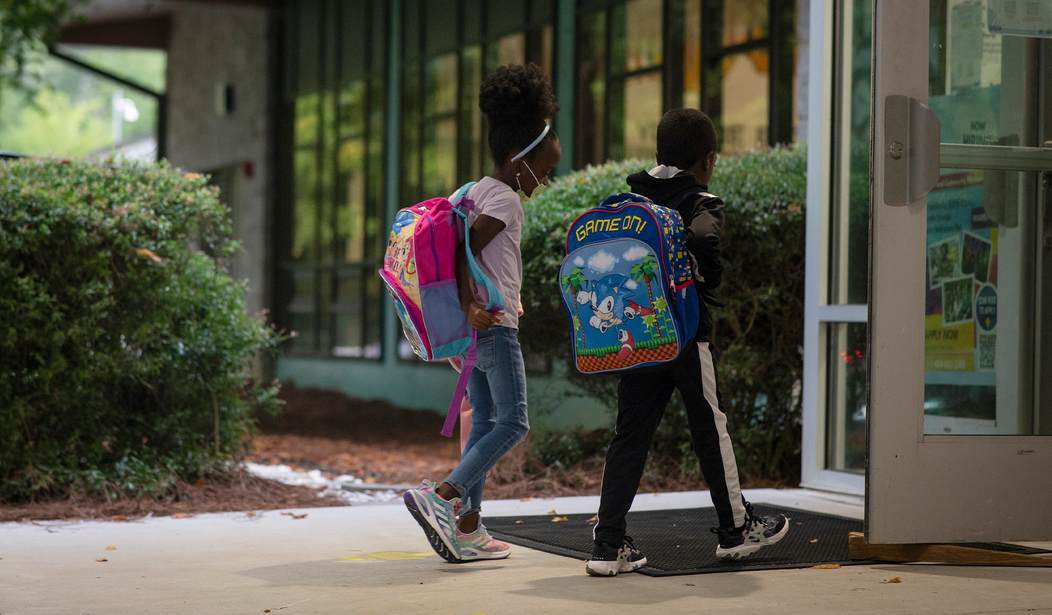I saw this blurb from Ripley's, the "Believe It or Not" people, and went, "Now just WAIT A COTTON PICKIN' MOMENT..."
How could they give them away if they were banned?
— Frog Capital (@FrogNews) March 11, 2024
Was Ripley's punished for violating this ban? https://t.co/xHZJSgQVPU
It wasn't so much the fact that Ripley's was giving away books banned in Florida to Florida residents, so how could they be banned to begin with. No, it was where this supposed ban took place - Escambia County.
Well, hello - that's where I live. Do I have to check the garage for my ancient copies of Ripley's now (If they start going after the Guinness Record yearbooks, I'm toast)?
The demand for the banned Ripley’s Believe It or Not books has surprised and delighted the entertainment company.
So far, about 17,500 Floridians requested a copy of a book after Ripley’s announced it was giving them away for free when a school district banned the title, the company said recently.
“Recently, officials in Florida’s Escambia County Public Schools district have plunged into a literary adventure of their own: removing and flagging over 1,600 books for review and potential banning. In a weird plot twist, this includes eight encyclopedias, five dictionaries, and hundreds of reference books — including three of our very own Ripley’s Believe It or Not! titles,” the company said on its website.
...Ripley’s will start mailing the famously weird books within the next few weeks, she said. Florida residents can also pick up the books at Ripley’s attractions in Orlando, Panama City Beach and St. Augustine locations with proof of ID.
Well, to be fair about the review, it IS state-mandated.
...In 2022, the state passed the Parental Rights in Education Law (HB 1557) and another measure (HB 1467) which called for an open review of all educational materials and made it easier for parents to challenge book titles.
And it turns out that there were about 1600 books pulled for review from the Escambia School libraries for allegedly having "pornographic" material in compliance with Florida's HB 1069. The problem with Ripley's "banned books" is that they weren't "banned" at all, and the effect of the tragic loss to students was pretty minuscule in scope for the short time the three were off the shelf of the ONE SCHOOL library they were in.
...Last month, three of them were on a list of over 1,600 books that, as of December, have been removed from Escambia County Public School District library shelves for review to ensure compliance with Florida's HB 1069. The books were "briefly removed" from one elementary school library and then returned to the shelves, said district spokesperson Cody Strother.
Well, that's a yawner of a ginned-up controversy, but I guess whatever's good for business.
As for those other "1600" books? Are they still all off shelves?
Again, no. They were all returned except for 160, which did meet some questionable content thresholds requiring further review.
The "banned book" foes swung into action, filing a First Amendment lawsuit against the county school board. The group is comprised of major publishers, authors and local parents who don't want anyone dictating what their children read. The lawsuit cleared its first hurdle back in January when the local federal judge ruled the suit could proceed.
A motion to dismiss a federal lawsuit against the Escambia County School District was denied on Wednesday.
...The judge issued caution to both parties moving forward.
Both the Escambia County School District and plaintiffs were urged to settle this lawsuit out of court -- stating he doesn't want to ask students to testify on what books they're interested in reading.
...After hearing arguments for why the removal of at least 160 books in Escambia County schools may or may not have violated the First Amendment, Judge T. Kent Wetherell II says "there's a fundamental problem with policy."
...Though the judge raised concern over the decision-making process for selecting and removing books asking, "why can one family decide what other children can read?"
Wetherell also stated district-wide decisions like this "don't need to be made by parents, judges or politicians."
Attorneys for PEN America, Penguin Random House, authors, and parents of Escambia County students allege their First Amendment rights were violated after the county school board subjectively removed books they found to be inappropriate.
One of the "banned books" they want returned to school shelves is All Boys Aren't Blue. Considering this autobiography's content and reputation, Escambia County is not an outlier, however Gomer-ish they try to paint the county for reviewing it.
George M. Johnson's young-adult memoir All Boys Aren't Blue has become one of the most banned books in the U.S.
The book is about growing up Black and queer, and always feeling different but not having the words to express it. Over the past couple of years, at least 29 school districts have banned the book because of its LGBTQ content and for being sexually explicit.
"Any time you write a book where you write about your truth, there are going to be people who want to silence that truth," Johnson, who uses they/them pronouns, tells Morning Edition's Leila Fadel.
So I'm guessing Mr. Johnson's memoir is being pulled from shelves more for the "sexually explicit" content as advocates want to frame it as an LGB-whatever issue. Whatever "his truth" might be, there are simply some explicit truths that are inappropriate for young school children. And that's the truth.
The school district fired back immediately - no one likes to be nationally painted as a knuckle-dragging Luddite, especially when it's something that the state is requiring you do. They also have to be responsible for the concerns of parents because, unlike other states, FL gives parents a voice in their child's education.
...Now, the school district is taking exception to reports that these books, including the dictionary are "banned."
After headlines began circulating last week of Escambia County banning more than 1,600 books including the dictionary from their libraries, Superintendent Keith Leonard sent WEAR News a statement, reading in part:
I would like to take this opportunity to address recent media attention surrounding the ongoing library books lawsuit in Escambia County, Florida. I want to clarify that our district has not imposed a ‘ban’ on over 1600 books. Additionally, the dictionary has not been banned in our district. Any claims suggesting otherwise are inaccurate and should be disregarded. It is regrettable, yet not unexpected, that certain media outlets choose to sensationalize this situation. Our school district, and especially our dedicated media specialists, remain committed to adhering to all statutes and regulations, while also providing valuable and varied literacy opportunities for every student.
Any parent can allege any book contains "pornographic material" (or inappropriate sexual content), and when they do, the book must be pulled from the shelves for review. That's the law. One high school teacher in the north part of the county has submitted hundreds of titles, and while completely within her rights, it's also clogged up the works. There are only so many sanctioned media reviewers to go through and vet the titles.
...So in theory, one Escambia County resident has the power to pull every book off the shelf, by simply alleging each book contains pornographic material.
Last week, WEAR News told you how Judge T. Kent Wetherell II says "there's a fundamental problem with policy" after hearing about this process.
His reasoning is that no parent should be allowed to decide what other parents permit their children to read.
Another problem, there's no timeline on when these books need to be reviewed, and there are only so many media specialists certified to review them.
I have a problem with the judge's thinking here, too (it's a stretch calling it "reasoning"). Where are the age-appropriate restrictions for any child in public? And what is a public school's responsibility to the parents who do not wish for their child to be exposed to extreme sexuality at a young age? Your home is your castle, indeed, but the public schools are society's and supposed to be bricks in the building block of civilized humans who will one day contribute. People who understand limits, protect childhood innocence, nurture growth, and know what is inappropriate for children.
He also said that district-wide decisions don't need to be made by "parents, judges, or politicians." Excuse me, your honor, but the librarian and teachers' union is not a final choice answer in this day and age. Also, again, FL state law empowers parents in their children's education, whatever your personal druthers.
The funny thing is the hypocrisy at the heart of the lawsuit against the school district, and it dings Judge Wetherell's problem with parents.
PEN America, one of the lead plaintiffs, is a well-established (1922) non-profit organization that charges into battle for the protection of free expression. It's very lofty.
"The Freedom to Write," they say.
PEN America stands at the intersection of literature and human rights to protect free expression in the United States and worldwide.
This really is something else.
...During last week's hearing, lawyers for PEN America acknowledged that there may be inappropriate books on shelves.
Ah! A breakthrough! The plaintiffs admit some of these materials may be inappropriate. Well, there we go, right?
WRONG
...Though PEN America alleges their lawsuit isn't about whether inappropriate books should remain on shelves, the lawsuit is about a member of the public's ability to have them removed because of personal beliefs.
Did you get all that?
Ripley's books weren't ever banned and books can be inappropriate.
But it's nobody's damn business if they are.









Join the conversation as a VIP Member